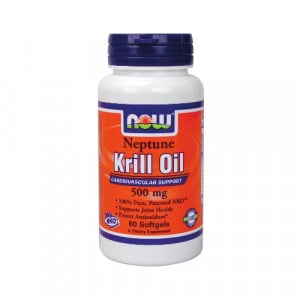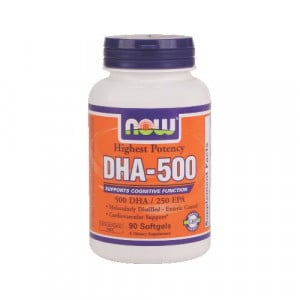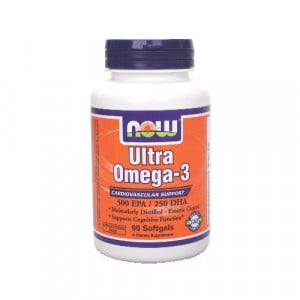- Home
-
Cleansing & Wellness
- Top Sellers
- Allergy Relief
- Anti-Aging
- Ayurveda
- Bladder Support
- Blood Pressure Support
- Blood Sugar Control
- Bone Strength
- Brain Support
- Candida & Parasite Cleansing
- Cardiovascular Support
- Cholesterol Support
- Cleansing / Detox
- Cold Sore Relief
- Cough, Cold & Flu
- Digestion & Enzymes
- Ear Support
- Eye Support
- Headache / Hangover Relief
- Homeopathic
- Immune Support
- Inflammation
- Joint / Pain Relief
- Kidney Support
- Liver Support
- Lung Support
- Mood Enhancers & Stress Relief
- Pet Supplements
- Prebiotics
- Probiotics
- Sexual Stimulants
- Sleep Aids
- Smoking Cessation
- Sports Nutrition
- Diet & Energy
-
Vitamins & Nutrition
- Top Sellers
- Acai Berry
- AHCC (Active Hexose Correlated Compound)
- Amino Acids
- Antioxidants
- Bee Products
- Children's Health
- CoEnzyme Q10
- DMAE
- Essential Fatty Acids
- Fiber
- Food Products
- GABA
- Ginseng
- Green and Whole Foods
- Hyaluronic Acid
- Maca
- Melatonin
- Men's Health
- Minerals
- Multi-Vitamins / Minerals
- Mushrooms
- Stevia and Other Sweeteners
- Vitamins
- Women's Health
- ZMA
- Personal Care
- blog
- Microbiome Plus+
- Smart Habits
Details
LIVE LIFE TO THE FULLEST
• Supports healthy mood and thought patterns
• Fine-tunes the balance of signals in the brain
• Alleviates the symptoms of mental disorders
A nutrient for thought
Of the omega-3 fatty acids in fish oil, EPA is the one that helps your brain. Research shows that when it comes to mental health, DHA, another omega-3 fatty acid, is useless at best and may even be damaging. These studies have meanwhile found ample evidence to support EPA's role in mental function.
A healthy mind for a happy life
EPA supplementation has been found to help patients with mental disorders such as schizophrenia and bipolar disorder. However, one does not need to have a full blown disorder to benefit from this nutrient. EPA supports healthy mood, clearing the mind and brightening outlooks to help people live everyday life to the fullest.
Essential for the brain
EPA is constantly being used by the brain. It is necessary for regulating neurotransmission for optimal brain function. Extra DHA can compete with and squeeze out EPA. An EPA rich supplement with very little DHA is the key to harnessing the full power of omega-3 fatty acids for brain health.
EPA for the heart, DHA for the brain. There's a reasonable-sounding argument behind this old paradigm, based on the fact that DHA (docosahexaenoic acid, or 22:6w3) is a major component of the brain, while there's only a tiny amount of EPA (eicosapentaenoic acid, or 20:5w3) in the brain and nervous system. So when research started to establish an inverse relationship between fish consumption and lower rates of depression, schizophrenia, seasonal affective disorder (SAD), and bipolar disorder, almost everyone leapt to the conclusion that the seaborne secret just had to be DHA.
Further research revealed that DHA in fact exerted most of its benefits in cardiovascular health, and that it was EPA which was responsible.
Several early trials enhanced this new omega-3 paradigm. In one such trial that focused on schizophrenia, the subjects took either straight EPA or placebo capsules as their sole encapsulated support. Antipsychotic medication was permitted only if during the course of the trial, the doctors deemed it clinically imperative for the sake of the patients' safety. However, the trial itself was still double-blind. At the end of the study, 100% of the people taking the dummy pill had been forced to go on an antipsychotic drug - versus only 57% of the EPA users.
Since then, three more randomized, placebo-controlled trials have been performed using highly purified EPA supplements to help people with schizophrenia - and two such trials have been performed in victims of clinical depression. There have also been an additional two studies in schizophrenics, and an additional one in victims of depression, using either very high doses of omega-3 supplements containing mostly EPA (but still including some DHA), or such a supplement combined with antioxidants.
In these eight trials with EPA, all but one produced effective relief from depression and schizophrenia, and in that one trial, the problem seems to have been the use of EPA in excessively high doses. One of the other aforementioned trials lasted only four weeks, and even in this short period, sixty percent of the people taking pure EPA experienced a remarkable 50% or greater reduction in their scores of depression, versus just ten percent of people taking the placebo. On average, the relief was clocked as a remarkable 12.4 point improvement on the Hamilton depression scale scores in EPA users - versus just a 1.6 point improvement in the placebo group.
Bipolar Disorder
Harvard Medical School performed a double-blind, placebo-controlled trial using high-dose fish oil supplements in 30 people trapped in bipolar disorder ("manic depression") in 1999, using the amount of omega-3s found in 32 standard fish oil capsules. At the end of the study, 86% of the people who had been taking the megadose EPA-containing oil were still free of relapse - versus only 38% of the people taking the placebo. EPA also exerted its most potent mood-enhancing capabilities in the absence of DHA. A similar study in 2006 also yielded impressive results, with no apparent differences between the study group receiving 2 grams of EPA daily and the group receiving 1 gram (as opposed to the placebo group).
Borderline Personality Disorder (BPD)
Having seen the convincing results experienced by EPA users with other disorders of the mind and personality, scientists initiated a pilot randomized, double-blind, placebo-controlled trial of EPA in 30 women plagued by BPD. The results were not earth-shattering -but they were significant. While symptoms improved in both groups, BPD sufferers taking the pure EPA supplements experienced greater reductions in both depression (about 15% more improved) and aggression (a 10% additional improvement) than did victims taking the placebo.
Although the precise mechanism of action of EPA's mood-enhancing effects remain within the realm of speculation, the possibility that they are related to EPA's anti-inflammatory functions is growing among scientists. This theory is supported by the fact that EPA inhibits arachidonic acid, an endogenous, pro-inflammatory omega-6 fatty acid that can produce 'bad' eicosanoids (signaling molecules that can negatively affect, among other things, the central nervous system).
Pioneering essential fatty acid researcher Ralph Holman put it succinctly: "DHA is structure. EPA is function." DHA is an essential structural component of nerve cells, needed in large amounts to build the brain during embryonic and childhood development, yet the developed brain's day-to-day DHA needs are minimal. By contrast, the small amount of EPA present in brain cell membranes at any given time is continuously being used up, necessitating ongoing replacement.
Additional Information
| ProductSKU | 624917040760 | |||||
|---|---|---|---|---|---|---|
| Manufacturer | N/A | |||||
| Per Container: | N/A | |||||
| Form | N/A | |||||
| Serving Size | N/A | |||||
| Ingredients | Contains: 180 Softgels 400 mg
180 Softgels: 400 mg Serving Size: 1 Softgel Amount per Serving:
Other ingredients:
Suggested Use: Take two to four capsules, twice daily with fat-containing meals, or as directed by a qualified health consultant. Main Applications Supports mood balance and healthy thought patterns.
Source: Pregnancy / Nursing: No studies. Best avoided. Cautions: None known. |
|||||
| Other Ingredients | . | |||||
| Directions | . | |||||
| Warning | . |








